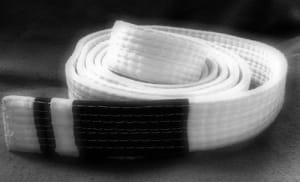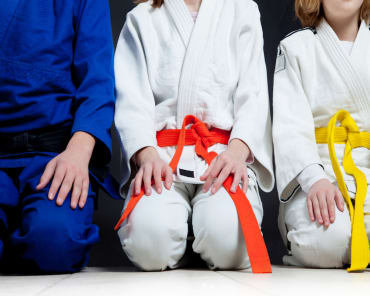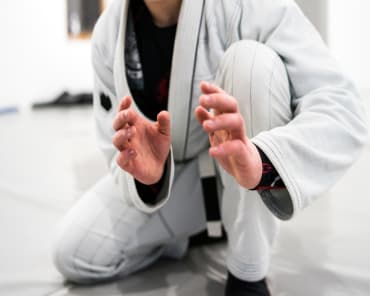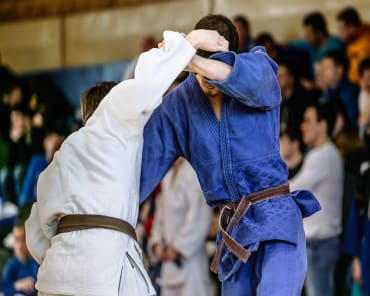
Brazilian Jiu-Jitsu (BJJ) is more than just a combat sport or self-defense system; it's also a powerful tool for weight loss and overall fitness transformation. Many people turn to BJJ with a desire to improve their health, lose weight, and become more physically active, and they soon discover that the sport offers far more than just a workout. Through engaging, full-body movements, BJJ helps individuals burn calories, build lean muscle, and improve cardiovascular health. Moreover, the practice of Jiu-Jitsu offers a mental and emotional transformation that encourages discipline and consistency. In this blog, we’ll dive into how BJJ can be a catalyst for significant weight loss and fitness improvements, and we’ll highlight success stories from individuals whose lives have been changed by the sport.
1. Full-Body Workout for Maximum Calorie Burn
One of the most immediate benefits of training Jiu-Jitsu for weight loss is the high number of calories burned during each session. Unlike conventional workouts that may focus on isolated muscle groups or cardio, BJJ engages the entire body through dynamic movements like grappling, transitions, submissions, and escapes. Every class involves high-intensity bursts of activity, especially during live sparring (rolling), which mimics the same intensity you might find in high-intensity interval training (HIIT) workouts.
During an average Jiu-Jitsu class, practitioners can burn anywhere from 500 to 1,000 calories, depending on the intensity and duration of the training. This calorie-burning potential makes Jiu-Jitsu a highly effective martial art for those looking to lose weight. What makes it even better is that the focus is not solely on the numbers on a scale—BJJ promotes a healthy and sustainable lifestyle through enjoyable, functional exercise.
In addition to calorie burning, Jiu-Jitsu improves cardiovascular health, stamina, and endurance. The constant movement and exertion required during training help boost your metabolism and strengthen your heart and lungs. Over time, the combination of calorie expenditure and improved conditioning results in consistent, healthy weight loss.
2. Building Lean Muscle and Boosting Metabolism
Weight loss is not just about shedding pounds; it’s also about improving body composition. One of the key components of Jiu-Jitsu training is building lean muscle mass. As you practice, you’re constantly engaging your core, legs, arms, and back to maintain balance, control your opponent, and execute techniques. This resistance training builds strength and muscle in a functional, dynamic way.
The more muscle you build, the more calories your body burns even when at rest. Lean muscle tissue has a higher metabolic rate than fat, meaning that it takes more energy (calories) to maintain muscle. As a result, your metabolism becomes more efficient, allowing you to burn more fat in the long run. BJJ training promotes muscle growth without the need for lifting heavy weights in a gym, making it a great alternative for people who prefer bodyweight-based, practical training.
Additionally, the combination of cardio and strength training in Jiu-Jitsu helps you lose fat while gaining muscle. This means that even if the number on the scale doesn’t drop significantly at first, your body composition will improve, with a noticeable reduction in body fat percentage and an increase in lean muscle mass.
3. Mental Discipline and Consistency
Weight loss is not just a physical journey—it’s a mental one. One of the most challenging aspects of any weight loss program is staying motivated and consistent. This is where Jiu-Jitsu truly shines as a weight loss tool. Because it’s not just a repetitive workout, but a skill-based practice, students stay mentally engaged throughout their fitness journey. Learning techniques, improving strategy, and setting goals for progression keep individuals coming back to the mat week after week.
Jiu-Jitsu instills a sense of discipline that goes beyond the mat. Training teaches you to be patient and consistent, which translates into healthier lifestyle choices off the mat as well. Practitioners often report that the structure and challenge of Jiu-Jitsu lead them to make better choices in other areas of life, such as nutrition, sleep, and stress management—key factors that can support or hinder weight loss.
Another important factor is the community aspect of Jiu-Jitsu. Training with a supportive group of teammates creates accountability and makes the process of weight loss more enjoyable. Instead of dreading the gym, practitioners look forward to the camaraderie, challenge, and learning that comes with each session.
4. Success Stories: Real Transformations
Many people who embark on their Jiu-Jitsu journey with a focus on fitness and weight loss find themselves undergoing not only a physical transformation but also a mental and emotional one. Here are a few examples of individuals who have experienced success in their fitness journeys through BJJ:
Sarah’s Story: Sarah came to Jiu-Jitsu to get fit and learn self-defense after years of struggling with her weight. In her first year of training, she lost over 40 pounds through consistent practice and changes in her diet inspired by her Jiu-Jitsu lifestyle. More importantly, Sarah gained confidence, improved her mental well-being, and built strong friendships within the BJJ community.
John’s Journey: John was 30 pounds overweight and had never enjoyed traditional gym workouts. He decided to try Jiu-Jitsu for fun and quickly fell in love with the art. Within six months, he had not only lost the extra weight but also gained a newfound passion for physical fitness. He credits Jiu-Jitsu for his transformation and continues to train multiple times a week, feeling healthier and more confident than ever before.
Melissa’s Transformation: After years of trying various workout programs with little success, Melissa decided to give Jiu-Jitsu a try to change things up. Within a year, she lost 50 pounds and developed the strength and stamina she had never thought possible. More than just physical results, Melissa now feels empowered, safe, and mentally strong—qualities she says BJJ helped her build.
5. A Lifestyle for Lasting Results
Jiu-Jitsu is not a quick-fix solution for weight loss. It’s a lifestyle that, when embraced fully, leads to sustainable, long-term fitness and health improvements. The blend of cardio, strength training, mental engagement, and community support ensures that practitioners stay motivated and consistent with their training. As a result, the weight loss and physical transformation experienced in Jiu-Jitsu are long-lasting and more effective than many traditional fitness programs.
Conclusion
Jiu-Jitsu offers a transformative approach to weight loss that goes beyond shedding pounds—it builds strength, resilience, and a healthier mindset. Whether you’re looking to improve your fitness, lose weight, or simply lead a healthier lifestyle, Brazilian Jiu-Jitsu provides a unique, enjoyable, and effective path to success. By engaging in consistent training, building muscle, and staying mentally engaged, you can achieve the fitness goals you’ve always aspired to—while learning self-defense and becoming part of a supportive, empowering community along the way.






